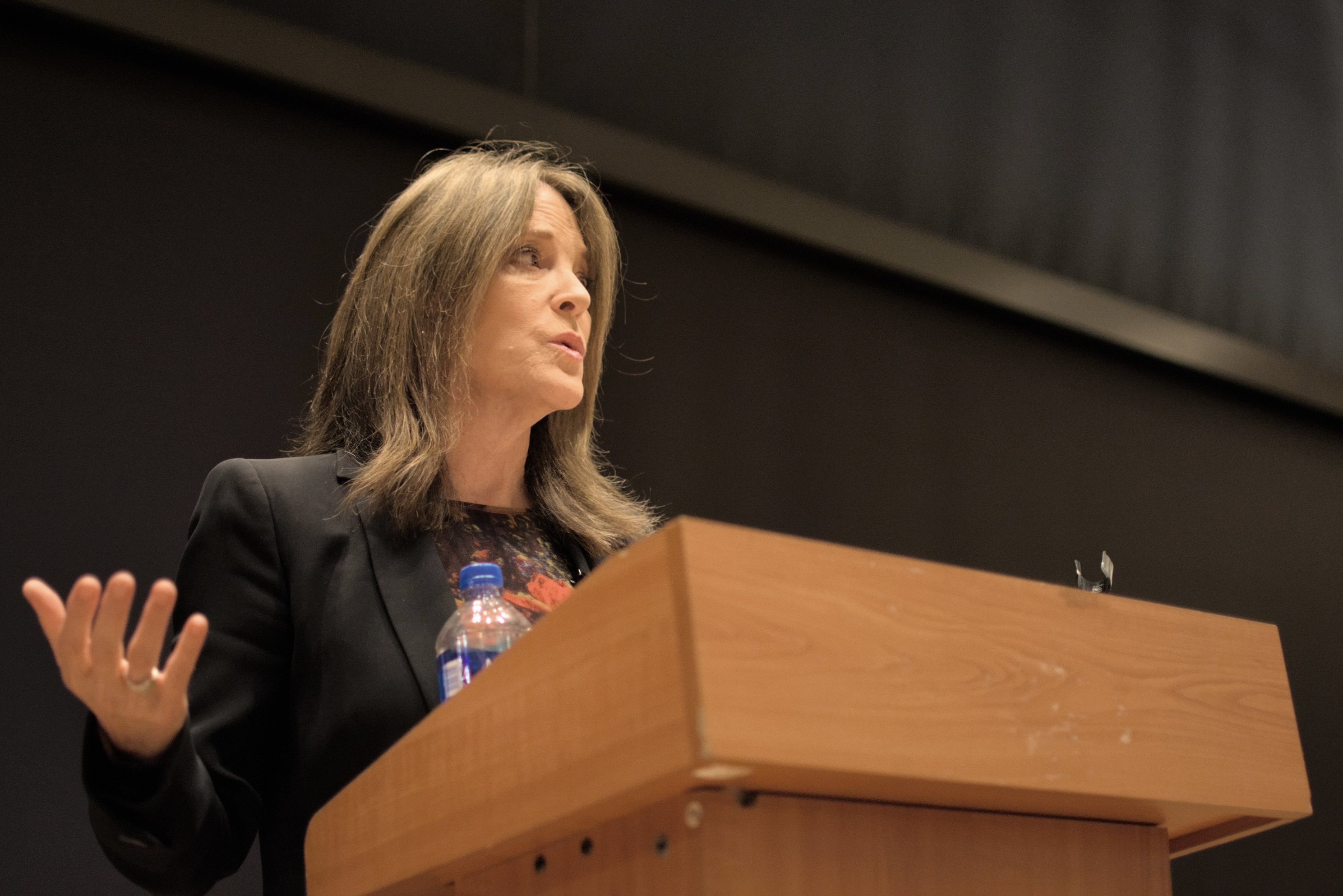Former presidential candidate and acclaimed spiritual author Marianne Williamson called for a shift towards a political “ethic of love” and equity-oriented economic reforms during a town hall organized by Stanford in Government and the Stanford Democrats Monday evening.
Williamson, whose visit comes just weeks before the upcoming 2022 midterm elections, addressed a crowd of over a hundred students while discussing hot-button policies, including universal healthcare and reparations. Although the town hall began with Williamson’s speech on structural political and economic challenges in the United States, the question-and-answer period also yielded more spiritual conversations about topics such as mindfulness, empathy, and self-care.
Williamson, who ran for president as a Democrat in the 2020 election and has written several New York Times-bestselling advice books, argued that the current political atmosphere in the United States has become fragmented by the “primacy of property rights” and growing economic inequality.
Citing challenges including the increase in the number of people currently imprisoned in the United States and the affordability of goods such as housing and education, she criticized approaches to policy-making that favor corporations’ “short-term profit maximization.” Instead, she promoted economic reforms such as increasing investment in green energy and paying reparations to the descendants of slaves.
“Fundamental economic reform would completely eschew [the] incremental approach [that] ‘as long as Trump’s not reelected, we’re not falling off the cliff,’” Williamson said. “We’re still six inches away, and if there’s any message that I would like to commit to your core understanding, it’s that we cannot hang forever six inches from the cliff.”
Williamson connected rising economic inequality and challenges such as inflation to dissatisfaction and brewing discontent among the American populace. She warned that political and economic tensions in the United States pose an urgent threat to the country’s stability.
“Nothing is more dangerous to the security of any country than large groups of desperate people,” she said.
Although Williamson focused her criticism on Republican politicians, eschewing the Republican party as “taken over by unequivocal adherence to the ideology of the primacy of property rights,” she also argued that “corporatist establishment leaders” in the Democratic party enabled events such as Trump’s election by undermining progressive political reforms in favor of maintaining the status quo.
“It’s been a long time since democracy has delivered on its promises,” Williamson said. She added that other “advanced democracies” offer more affordable and accessible healthcare and education to their citizens than the United States offers to Americans.
Both the event’s organizers and students in attendance expressed their enthusiasm about hearing Williamson’s perspective on a number of political topics, particularly given her experience running a presidential campaign with a nontraditional background as a spiritual writer and activist.
“We wanted to pull a current person, a current influencer in politics, to make sure that students see politics are tangible in their lives and have access to the insights of someone who just ran in the most recent, most consequential election cycle that we’ve ever seen,” said Christopher Maximos ’23, a political science major and the chair of Stanford in Government.
Cameron Lange ’24, who helped organize the town hall, added, “a lot of people write Marianne off because she’s new-agey, but she has an exciting progressive policy agenda. She’s one of just a few mainstream politicians to openly support reparations for slavery.”
Williamson ended the night on a hopeful note, emphasizing the role that love, as well as spiritual and mindfulness-oriented practices such as meditation, yoga, and prayer, can play in both self-care and political reform. A self-professed follower of Mahatma Gandhi’s nonviolent political philosophy, Williamson said that starting off the day with mindful and spiritual practices, as well as approaching the people around you with love and empathy, can help enact political and economic change.
“I believe that where there is love, miracles, miracles occur,” said Williamson. “And I do believe that when our minds expand, our possibilities expand.”
